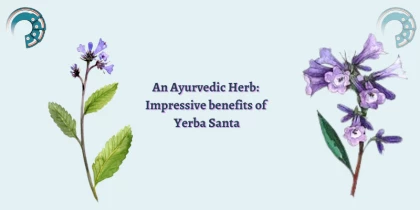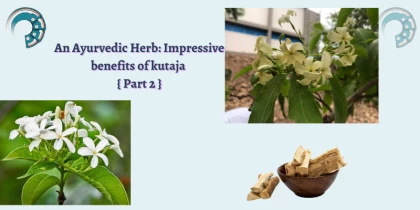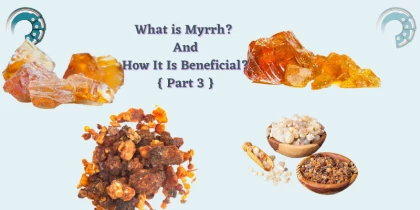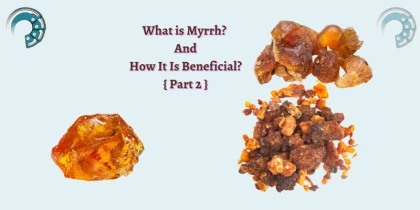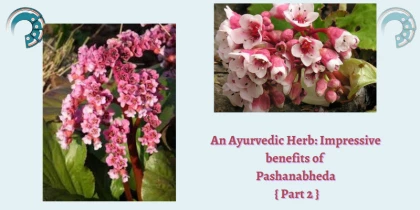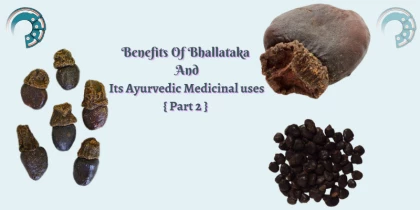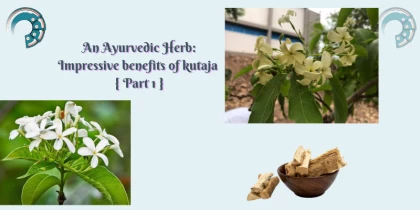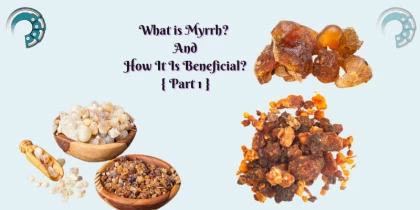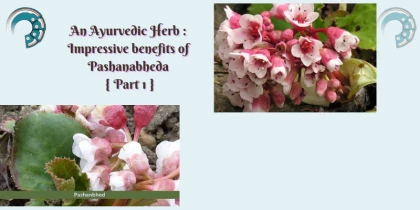
An Ayurvedic Herb : Impressive benefits of Pashanabheda { Part 1 }
Pashanbhed :
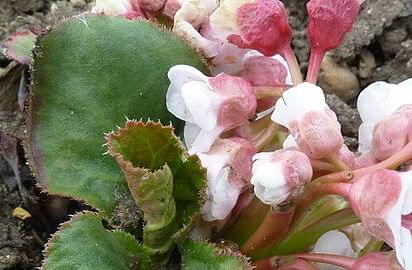
Pashanbhed or stone breaker is a well-known Indian herb. Its rhizome is the most used part for medicinal purposes. Pashanbhed is mostly used for the removal of kidney and urinary tract stones due to its antilithic property. According to Ayurveda, consuming Pashanbhed powder increases urine production and helps in the easy removal of stones due to its Mutral (diuretic) property.
Pashanbhed might also help in reducing fever due to its antipyretic property and give relief from cough due to its antitussive properties. It might also help manage ulcers due to its antioxidant and antiulcer properties. You can apply Pashanbhed paste on the skin to manage boils and inflammation due to its anti-inflammatory property.
Pashanbhed has been used both in modern and Ayurvedic systems of medicine for treating various health maladies. This herb's rhizomes and roots are widely utilized in conventional medicine. The intense antilithic property of Pashanbhed helps break kidney stones and provides wonderful pain relief. This therapeutic plant can be applied topically or orally to treat swelling, ulcers, and wounds. Additionally, regular consumption of Pashanbhed powder stimulates urine production, which helps to remove kidney stones as well.
Pashanabheda in Ayurveda :
The root of this plant is extensively used in the Ayurvedic system due to its medicinal properties. According to Ayurveda, it balances all the three doshas- Vata, Pitta, and Kapha. It has a bitter, astringent taste and cold potency. The main chemical constituents of Pashanabheda include bergenin, gallic acid, starch, glucose, tannins, mucilage, C-glycoside, and b-sitosterol. It also has diuretic, antipyretic, hepatoprotective, anti-inflammatory, cardioprotective, antiurolithic, antimicrobial, antioxidant, and anti-ulcer properties.
Ayurvedic Indications :
 Pashanbhed denoted as “Stone Breaker” since the Vedic time and its root and rhizomes have been mentioned in several ayurvedic scriptures for various ayurvedic indications, which include :
Pashanbhed denoted as “Stone Breaker” since the Vedic time and its root and rhizomes have been mentioned in several ayurvedic scriptures for various ayurvedic indications, which include :
- Bastishodhana- cleanses bladder
- Bhedaha- piercing
- Arsha- hemorrhoids
- Gulma- abdominal tumor, distention
- Mutrakrichra- dysuria
- Hrudruja- treats cardiac problems
- Yoniroga - treats gynecological problems
- Prameha- regulates diabetes and urinary tract issues
- Pleeha- splenomegaly
- Shoola- abdominal cramps
- Vrana- speeds up the wound healing process
Uses Of Pashanbhed :

In the holistic system of ayurvedic medicine, pashanbhed is used to cure ulcers, ear pain, teething issues in kids, constipation, cough, fever, etc. Pashanbhed has been used in the Unani system of medicine as well. Aside from these, it also reduces high blood pressure and shields the liver from getting infected. This powerful herb is highly valuable in treating several diseases and serves as a panacea for all health woes.
Benefits of Pashanabheda :
Diabetes :
 Diabetes, also known as Madhumeha, occurs due to an aggravation of Vata-Kapha dosha as well as impaired digestion. Impaired digestion leads to an accumulation of Ama (toxic remains in the body due to improper digestion) in the pancreatic cells and impairs the function of insulin. Pashanbhed helps manage Diabetes due to its Vata-Kapha balancing and Tikta (bitter) properties. It helps prevent the accumulation of Ama and improves the function of insulin, thereby managing blood sugar levels and reducing the symptoms of Diabetes.
Diabetes, also known as Madhumeha, occurs due to an aggravation of Vata-Kapha dosha as well as impaired digestion. Impaired digestion leads to an accumulation of Ama (toxic remains in the body due to improper digestion) in the pancreatic cells and impairs the function of insulin. Pashanbhed helps manage Diabetes due to its Vata-Kapha balancing and Tikta (bitter) properties. It helps prevent the accumulation of Ama and improves the function of insulin, thereby managing blood sugar levels and reducing the symptoms of Diabetes.
Benefits of Pashanbhed as a Diuretic :
- Diuresis refers to an increased passage of urine.
- Alcoholic extracts of roots of Bergenia ligulata proved to increase urinary electrolyte concentration of sodium, potassium, and chloride, which shows that it has diuretic properties.
- The diuretic property of the roots of Bergenia ligulata might be due to the presence of compounds like saponins and flavonoids.
Piles :
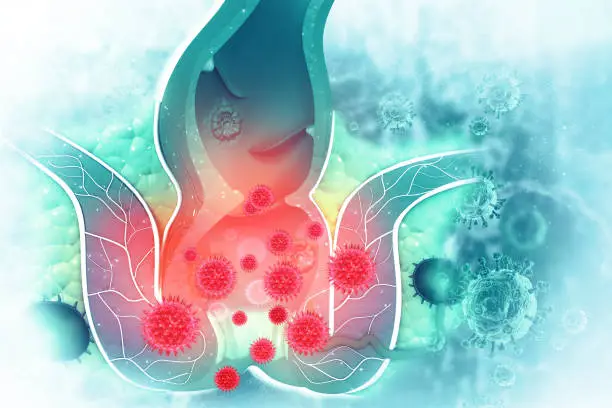
Piles, known as Arsh in Ayurveda, are caused due to an unhealthy diet and a sedentary lifestyle. This leads to the impairment of all the three doshas, mainly Vata and Pitta dosha, resulting in a low digestive fire and eventually persistent constipation. This causes swelling of the veins in the rectum area and the development of a piles mass. Pashanbhed helps prevent indigestion and relieves constipation due to its Vata and Pitta balancing and Rechana (laxative) properties. It also provides a cooling effect to the affected area due to its Sita (cold) property.
Dysuria :
Dysuria is a symptom of a urinary tract infection where an individual suffers from painful or difficult urination. This condition can occur due to an imbalance of any of the three doshas (Vata, Pitta, or Kapha). Pashanbhed increases urine production and thus provides relief from painful urination due to its Tridosha (Vata, Pitta, and Kapha) balancing and Mutral (diuretic) properties.
Benefits of Pashanbhed for the Reproductive System :
- Pashanbhed powder helps nourish and correct the functioning of the reproductive system.
- Pashanbhed is also used for treating gynecological problems.


